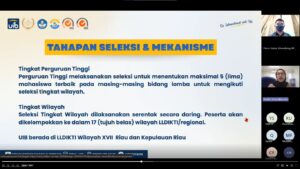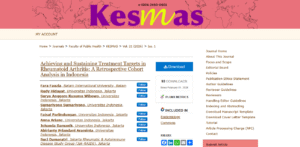Writer: Emiliya Febriyani, S.H., M.H.
President Prabowo Subianto’s speech at the 80th United Nations General Assembly recently garnered widespread praise and global attention. In that international forum, Prabowo appeared confident, spoke calmly yet firmly, radiated authority, and conveyed Indonesia’s message as the world’s third-largest democracy. Many considered it one of Indonesia’s finest speeches on the global stage in the past decade. His performance was even regarded as far superior to that of former U.S. President Donald Trump, whose speeches were often colored by provocative tones and divisive rhetoric.
Whereas Trump, with his slogan “America First,” often stressed narrow national interests, Prabowo emphasized global solidarity. His speech stood out as a refreshing contrast, countering Trump’s remarks. Prabowo highlighted the importance of multilateralism-something frequently undermined by other world leaders’ speeches, especially Trump’s. This recognition is noteworthy. Prabowo successfully projected a new image of modern Indonesia confident and ready to play an important role in global affairs. In the realm of diplomacy, an elegant and articulate rhetorical style is indeed vital in shaping a nation’s image.
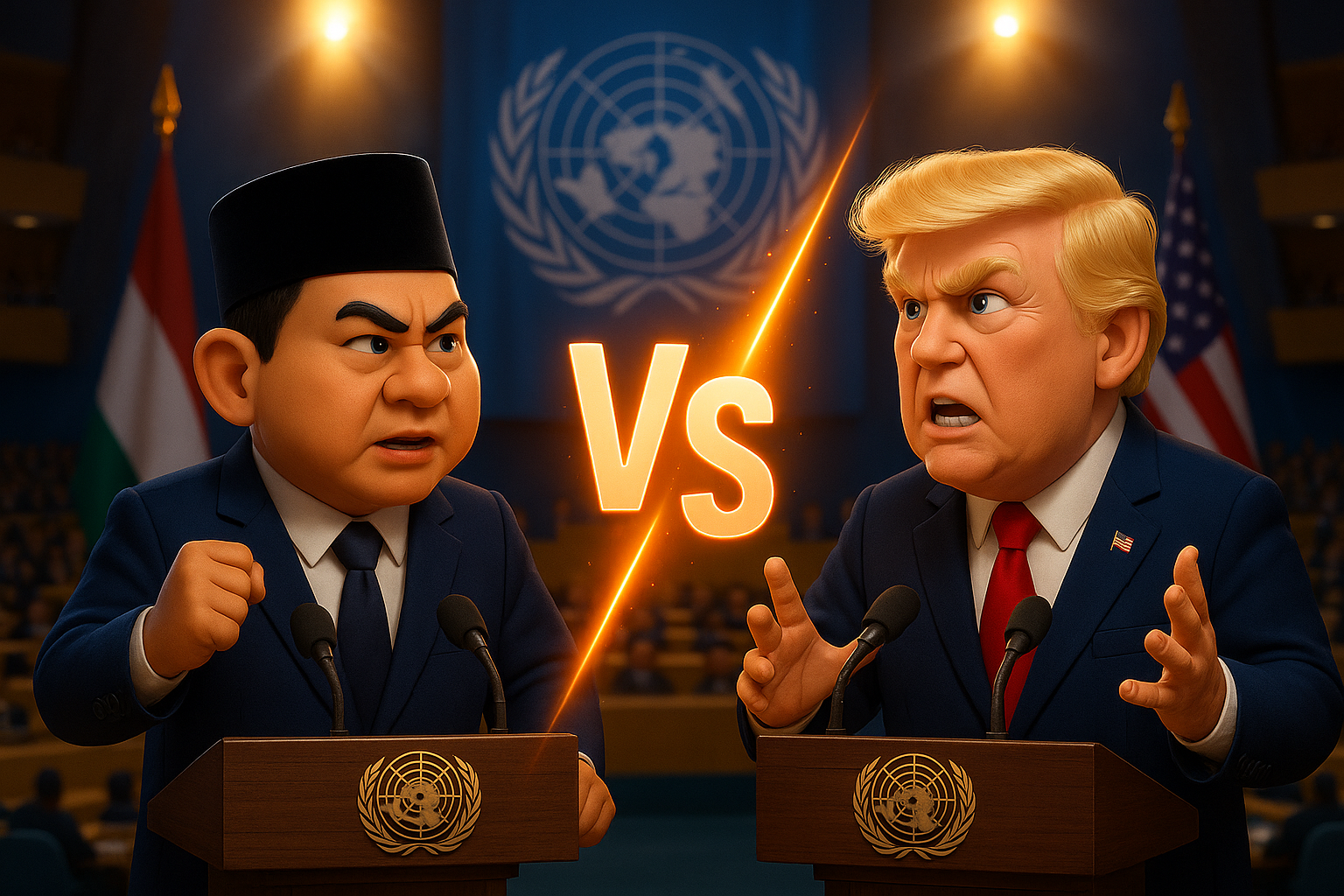
Source: ChatGPT
Praiseworthy of Recognition
There are several reasons why this speech earned widespread appreciation. First, Prabowo elevated Indonesia’s image as a nation prepared to take on a greater role in global affairs. “Thucydides warned: the strong do as they wish, the weak suffer what they must. We must reject this doctrine. What is right must not be defined by strength. What is right must remain right.” This statement was more than just a historical quotation; it was a firm declaration that Indonesia sides with justice, not mere power.
Second, the speech contained concrete commitments. Indonesia affirmed its role as one of the largest contributors to UN peacekeeping forces. “Indonesia is one of the largest contributors to UN Peacekeeping Forces. We believe in the United Nations. We will continue to serve wherever peace needs guardians not only with words, but with boots on the ground.”
This statement is backed by data: as of 2024, Indonesia has deployed over 2,700 active personnel in UN peacekeeping missions, placing it among the top five contributors. This fact demonstrates that Indonesia’s commitment extends beyond rhetoric.
Few leaders of developing countries can speak with such clarity and articulation on the global stage. Prabowo emphasized the importance of international cooperation, solidarity among nations, and global justice. He also addressed climate change, sustainable development, and Indonesia’s commitment to maintaining world peace.
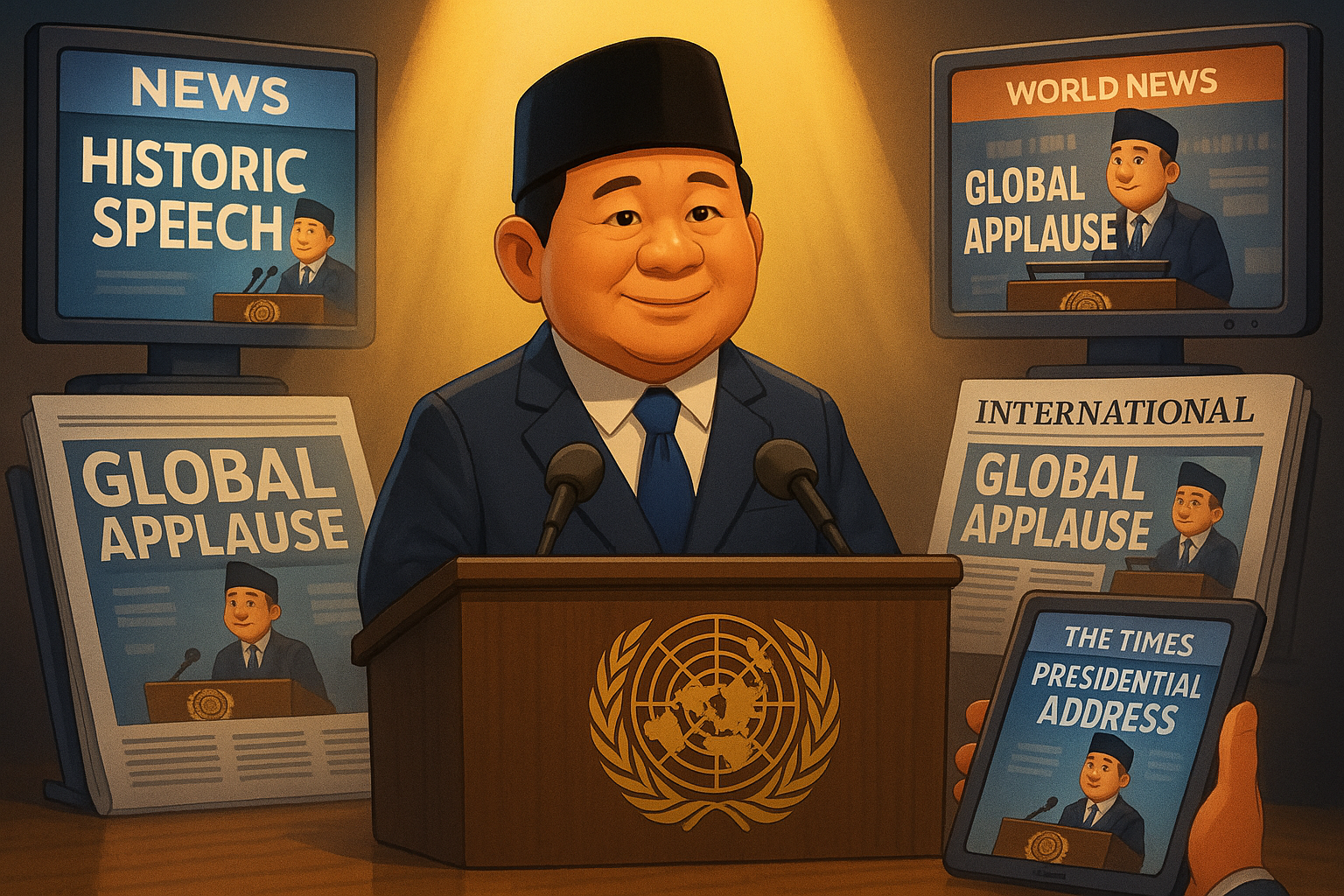
Source: ChatGPT
Moreover, Prabowo’s calm and authoritative demeanor conveyed the impression that Indonesia now has a leader ready to perform on the world stage. It is no surprise that many international observers hailed this as one of Indonesia’s strongest speeches in recent years.
Yet, amid the strength of the speech, one thing felt unresolved: the President refrained from explicitly naming what is happening in Palestine as genocide. The United Nations itself, along with international human rights organizations such as Amnesty International, has confirmed that genocide is being carried out by Israel in Palestine.
The use of the word “catastrophe” to describe the situation in Gaza risks obscuring Israel’s responsibility for genocide. For the international community, including Indonesia, it is crucial to end the genocide and hold perpetrators accountable.
This omission is a critical note that cannot be overlooked. As a nation born out of the suffering of colonialism and one that has consistently championed justice for oppressed peoples, Indonesia bears a moral obligation not to remain silent on such a grave issue. At the UN forum, Indonesia’s voice would have resonated even more strongly had it boldly used the term “genocide,” without fear of being seen as aligned with one political bloc or another.
Remaining silent raises questions: Is Indonesia being overly cautious in safeguarding international relations? Or is there a fear that invoking the term genocide might trigger undesirable diplomatic consequences? Whatever the reason, for many, this silence is painful.
Why Naming Genocide Matters
Calling something genocide is not a mere play of words. The term “genocide” was coined by Polish jurist Raphael Lemkin in 1944, derived from the Greek genos (race, people) and the Latin caedere (to kill). It was first used to describe crimes committed by the Nazis during World War II and was later codified as a legal term in the UN Genocide Convention of 1948.
Under the 1948 Convention, genocide carries profound moral and political weight. It is one of the gravest international crimes, equal in seriousness to crimes against humanity and war crimes. Genocide refers to acts committed with the intent to destroy, in whole or in part, a national, ethnic, racial, or religious group. These acts may include killing members of the group, causing serious bodily or mental harm, deliberately inflicting conditions intended to destroy the group, preventing births within the group, or forcibly transferring children to another group.
By avoiding this term, Prabowo’s speech may have been diplomatically safer. Yet, it also made Indonesia appear hesitant to stand firmly with victims of oppression who are in urgent need of international solidarity. Historically, from the era of Sukarno to Susilo Bambang Yudhoyono, Indonesia has consistently presented itself as a nation committed to freedom and justice.
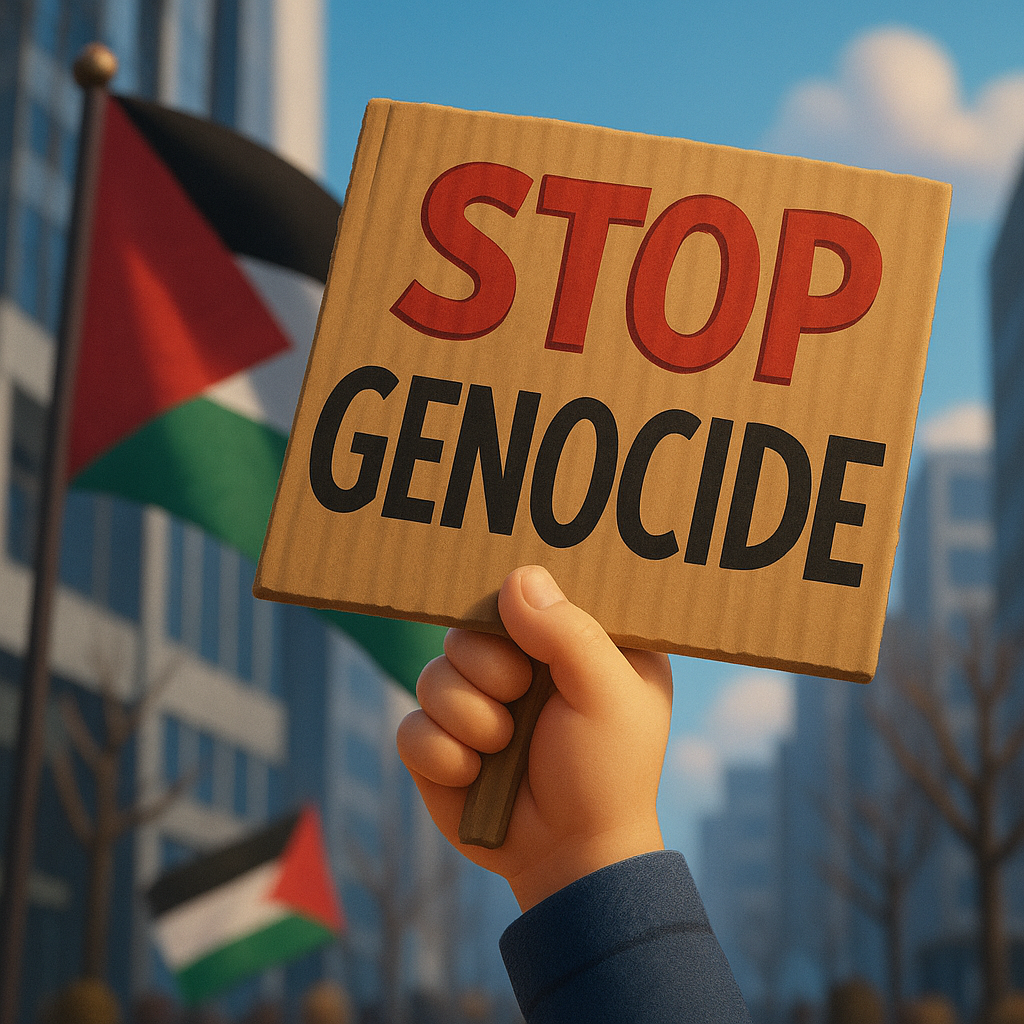
Source: ChatGPT
Between Diplomacy and Morality
We must acknowledge that the head of state’s speech at an international forum is not solely about morality but also about diplomatic strategy. National interests must be safeguarded, and political as well as economic relationships preserved. However, history shows that a strong moral voice can elevate Indonesia’s standing in the world.
In the 1960s, Sukarno dared to openly challenge the dominance of great powers. Today, under Prabowo’s leadership, the challenge lies in how Indonesia can assert its voice on the most urgent humanitarian issue: genocide.
Prabowo’s UN speech is indeed commendable. He spoke convincingly, elevated Indonesia’s image, and inspired confidence that we can stand shoulder to shoulder with other world leaders. Compared to Trump’s controversial rhetoric, Prabowo was clearly more elegant, more meaningful, and more deserving of praise.
Yet, the praise comes with lingering criticism. Why was the word “genocide” not spoken aloud? Is Indonesia afraid of losing diplomatic space, or is it calculating for long-term strategy?
Whatever the reason, the silence leaves unanswered questions. Behind the loud applause, the world is still waiting: when will Indonesia finally call things by their proper name? Hats off to President Prabowo’s speech!
Editor: Ambarwulan, S.T.
Reference
- United Nations. (1948). Convention on the prevention and punishment of the crime of genocide. United Nations. https://www.un.org/en/genocideprevention/documents/atrocity-crimes/Doc.1_Convention%20on%20the%20Prevention%20and%20Punishment%20of%20the%20Crime%20of%20Genocide.pdf
- HukumOnline. (2024, January 11). Genocide crimes in international law. HukumOnline. https://www.hukumonline.com/berita/a/kejahatan-genosida-dalam-hukum-internasional-lt659fb6975fb29
- Goodstats. (2025, February 21). Indonesia ranks 6th largest contributor to UN peacekeeping missions. Goodstats. https://goodstats.id/infographic/ri-kontributor-terbesar-ke-6-untuk-misi-perdamaian-pbb-NGjLI
- Cabinet Secretariat of the Republic of Indonesia. (2023, May 29). Indonesia’s role in United Nations peacekeeping missions. Setkab.go.id. https://setkab.go.id/kiprah-indonesia-pada-misi-pemeliharaan-perdamaian-pbb
- Saputra, D. R. (2021). Genocide crimes in international law perspectives. Gema Keadilan, 8(3), 365–379. Diponegoro University. https://ejournal2.undip.ac.id/index.php/gk/article/download/9075/4630

